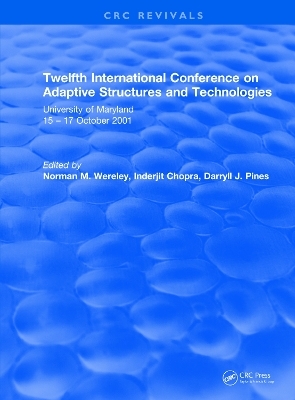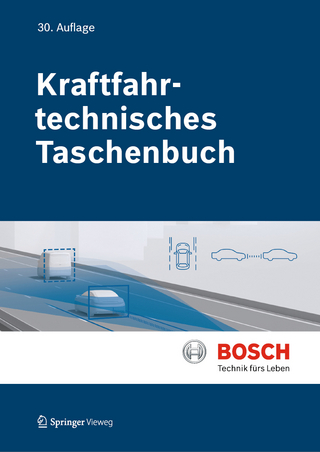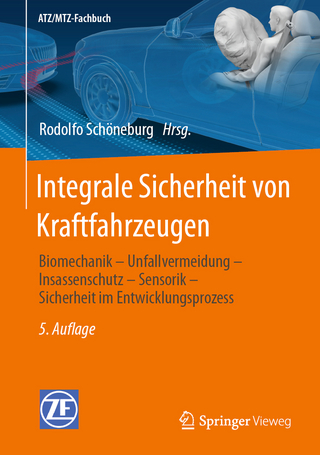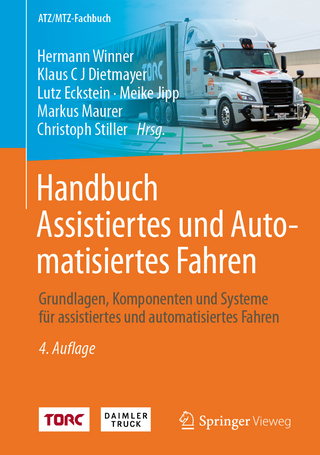
Twelfth International Conference on Adaptive Structures and Technologies
CRC Press (Verlag)
978-1-138-56287-5 (ISBN)
Norman Wereley, Inderjit Chopra, Darryll Pines
Feasibility of Adaptive Micro Air Vehicles. Development of a Strain-Rate Dependent Model for Uniaxial Loading of SMA Wires. Adaptive Control of Semi-Active Variable Stiffness Devices for Narrow-Band Disturbance Rejection. Advanced Actuators. Mechanically Ratcheting Piezoelectric Motors. Solid-Fluid Hybrid Actuation: Concepts, Models, Capabilities and Limitations. Compact Piezo-Hydraulic Hybrid Actuator. Performance Modeling in a Piezo-Hydraulic Actuator. Experimental Studies of Zero Spillover Scheme for Active Structural Acoustic Control Systems. Smart Damping. An Adaptable Active-Passive Piezoelectric Absorber For Nonstationary Disturbance Rejection — Theory and Implementation. Hybrid Piezoelectric Damping System for Flexible Three-Story Structure with Base Excitation. Electrorheological Damper Analysis Using an Eyring Constitutive Relationship. Vibration Control of Train Suspension Systems via MR Fluid Dampers. Testing and Modeling of Magnetorheological Vibration Isolators. Identification And Control. Model to Determine the Performance Requirements of Adaptive Materials used to Morph a Wing with an Aerodynamic Load. Shape Control with Karhunen-Loève-Decomposition: Experimental Results. Damage Identification in Aging Aircraft Structures with Piezoelectric Wafer Active Sensors. Adaptive Stiffness Design For Multi-Material Structural System. Smart Materials. Constitutive Model of Shape Memory Alloys Based on the Phase Interaction Energy Function and its Application to Thermomechanical Process. Manufacture Of Ionic Polymer Actuators Using Non-Precious Metal Electrodes. Chemoelectric and Electromechanical Modeling of Ionic Polymer Materials. Modeling And Identification. Vibration Testing and Finite Element Analysis of Inflatable Structures. Fiber Tip Based Fiber Optic Acoustic Sensors. Modeling of Plate Structures Equipped with Current-Driven Electrostrictive Actuators for Active Vibration Control. Electro-Mechanical Coupled Modeling and Optimization of Passively Damped Adaptive Composite Structures. Interrogation of Beam and Plate Structures Using Phased Array Concepts. Modelization and Numerical Approximation of Active Thin Shells. Development of A PVDF Piezopolymer Sensor for Unconstrained In-Sleep Cardiorespiratory Monitoring. Simultaneous Design of Structural Topology and Control. High-Load/High-Speed Systems. Modelling and Design of High-Load Actuator Systems in Adaptive Structures. Development of Smart Missile Fins with Active Spoiler. An Adaptronic Solution To Increase Efficiency Of High-Speed Parallel Robots.
| Erscheinungsdatum | 29.01.2019 |
|---|---|
| Reihe/Serie | CRC Press Revivals |
| Verlagsort | London |
| Sprache | englisch |
| Maße | 206 x 279 mm |
| Gewicht | 453 g |
| Themenwelt | Technik ► Fahrzeugbau / Schiffbau |
| Technik ► Luft- / Raumfahrttechnik | |
| Technik ► Maschinenbau | |
| ISBN-10 | 1-138-56287-4 / 1138562874 |
| ISBN-13 | 978-1-138-56287-5 / 9781138562875 |
| Zustand | Neuware |
| Haben Sie eine Frage zum Produkt? |
aus dem Bereich


